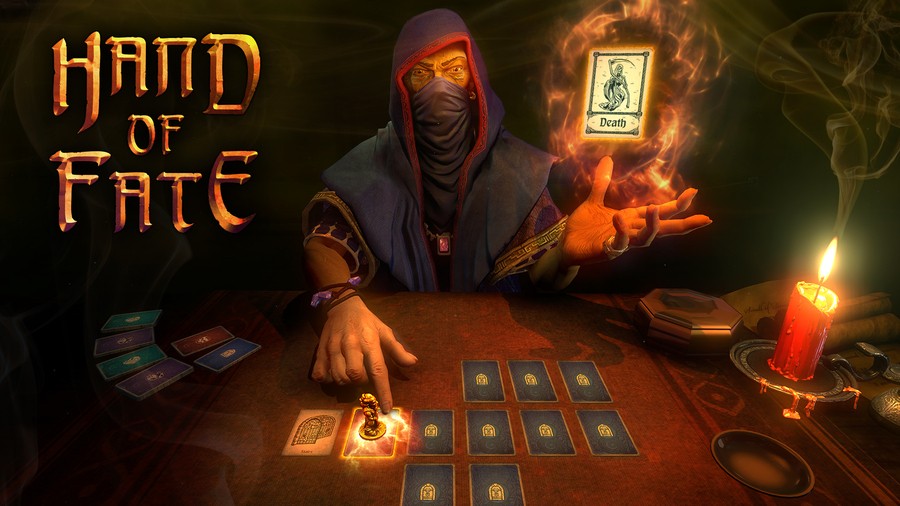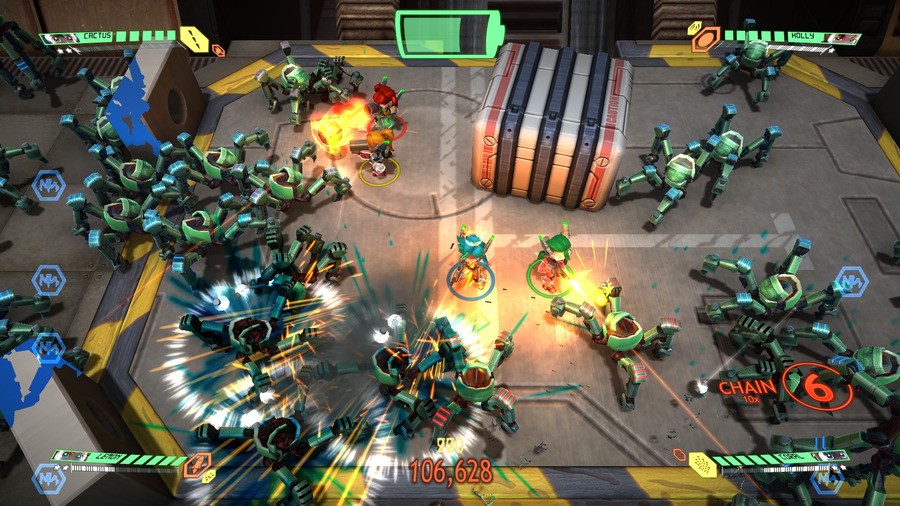
Sony loves indies. It’s a slogan which, for better or worse, has come to shape the Japanese giant’s business strategy in recent months. These smaller experiences have been used to plug holes in the inevitable first year software drought, while also seeing a mini-renaissance on PlayStation Plus’ Instant Game Collection. Whether you love or loathe these lower budget titles, their critical and commercial prominence can’t be denied.
And as it turns out, this reporter – who hails from Australia – actually has a swathe of indies waiting in his own back yard. Indeed, the land down under plays host to a bustling and diverse indie scene, and one that will serve the PlayStation brand well in the weeks and months to come. We recently had a chance to play a couple of these titles at PAX Australia, and came away very impressed.
 Watch on YouTube
Watch on YouTubeSubscribe to Push Square on YouTube166k

Hand of Fate
Hand of Fate is difficult to describe. Created by Brisbane-based studio Defiant Development, the PlayStation 4 title is a roguelike brawler card game. You sit across from a dealer who lays down randomly drawn cards, each of which represents an encounter. Some are more traditional role-playing scenarios, while others see you battling hordes of beasties.
When you do come across an enemy, the game switches to become a real-time third person brawler in which you’ll battle your foes using all of the weapons and abilities that you’ve collected on your travels. Each time that you move to a new card, you’ll consume one piece of food, meaning that you’ll need to carefully manage your resources. Eventually you’ll come across a boss card, which will see you squaring off against a particularly challenging foe.
Crucially, once you’ve finished a mission, you’ll be rewarded with several new cards, which can be used to customise your deck. In this way, you can swiftly tailor the experience to your own preferences. If you want a more narrative-heavy campaign, simply add more narrative-heavy cards, and vice versa. The dealer will always shuffle in a couple of curveballs, though, meaning that each mission will feel different.
In short, it’s like the glorious lovechild of Rogue Legacy, God of War, and Dungeons & Dragons. If that laundry list of genres sounds bizarre and unwieldy, that’s because at first glance it absolutely is. But once you actually dive in, the title does a very good job of revealing itself to you. Indeed, you’ll quickly wonder why no one has ever thought of this particular idea before. This utterly intriguing premise, combined with high production values, and the potential for infinite replayability, make Hand of Fate a game that should definitely be on your radar.

Assault Android Cactus
Assault Android Cactus is a twin-stick shooter developed by Witch Beam Games – another indie studio stationed in the sunny city of Brisbane – and is coming to the PS4 and Vita. On first glance, the title seems to follow most of the genre’s usual tropes. You’ll choose one of several different characters, and then flit about, shooting aliens while avoiding the sort of gunfire usually reserved for bullet hell.
However, the traditional life bar has been replaced with a slowly depleting battery, shifting the focus from pure bullet based insanity to time management. We’re also pleased to report that the shooting in the title feels exactly as it should. Indeed, as with the best shmups, we were so busy having fun blowing holes in our enemies that we didn’t realise how polished the action was until after we’d finished playing.
Aside from its ludicrously tight gameplay, the best thing about this Aussie indie is its multitude of meticulous design choices. Indeed, after speaking to its developer, it was clear that a lot of thought has been put into every single aspect of its creation. For instance, the core battery-based conceit is a direct reaction to a perceived fault in typical twin-stick design; namely, a standard health bar tends to force you to play conservatively when you’re near death, ostensibly making things less frenetic and intense.
This title’s central system has the exact opposite effect. When you’re running low on power, you’re forced to play much more aggressively, because you need to topple more foes in order to find the items that will recharge your battery. In this way, the game feels familiar but foreign at the same time. Ultimately, it’s these sorts of clever choices that make Assault Android Cactus feel light-years ahead of the other entries in its ubiquitous genre.
Do these outback indies appeal to you, or do you think that they should be left down under? Pour yourself a pint of Fosters in the comments section below.





Comments 5
Great article, Kell. I played Assault Android Cactus when they brought over here for Eurogamer Expo, and had a blast. Any idea when that will be finished?
@get2sammyb I did ask, but they didn't really give me an answer. I think they're planning to launch on PC first, and then they'll focus on the Sony side of things.
tl;dr: Next year, probably
Intrigued by the first one, certainly not heard of anything remotely similar before! As for AAC, does anyone else reckon the mechs look similar to some of those found in GITS?
Dang. I had the opportunity to go to Sydney to cover this event, but I just moved - and now I'm too poor 😢
Ah well. Both those games look incredibly interesting!
That first game sounds intriguing.
As long as it isn't, yet another, indie platformer that tries to play itself off as "art" to cover up the fact that the game is 3 hrs. long.......I will be keeping my eye on the card game.
Show Comments
Leave A Comment
Hold on there, you need to login to post a comment...